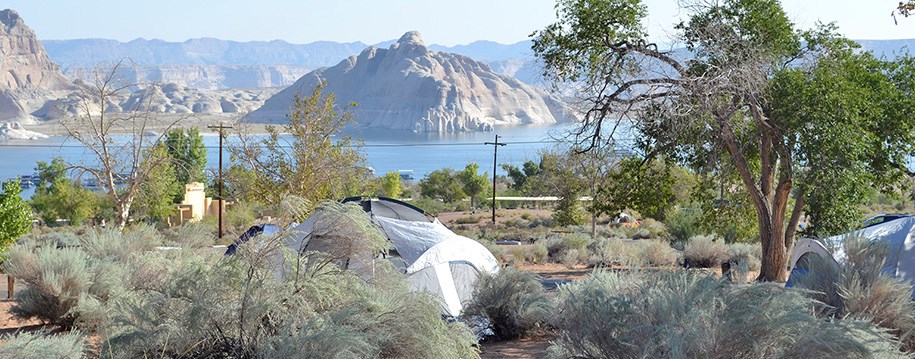Camping trips are a great way to spend some time communing with family, friends, and nature. Regardless of the time you intend to spend camping, preparation is very crucial. The most important question is, “What do you need for camping?”

Having the necessary equipment and supplies can make a great difference in your general experience and enjoyment. The best way to ensure proper preparation for your camping is by having an ultimate checklist. Your list may vary depending on the time of year, type of camping, places you’re visiting, length of your trip, and activities you have planned.
What Do You Need for Camping?
Below is a list of camping trip items to consider for an amazing outdoor experience. Ensure to pack all the items you need such as camping tents, light sleeping bag, sleeping mat, air pump, and air mattress. Also, double-check before you begin your trip to avoid any regrets later on.
Shelter and Bedding
Unless you’re planning to be sleeping in your van, RV, or just under the stars without shelter, you’ll need to pack your tent. You should bring your sleeping bag, pillows, storage utility bags, air pump, sleeping pad/air mattress, blankets/sheets, repair kit, extra stakes, dustpan, tent entrance mats, ground cloth, and shade poles/tarp/rope.
Kitchen
You can hardly 100% guarantee that you’ll have a campfire to cook, especially when you’re planning to winter camp. It’s always good to have an alternative plan for cooking your meals while camping.
If you plan to have a grilling session (who doesn’t love that while on a camping trip?), find one of the ideal camping grills. They are typically versatile and can accommodate cooking in various environments. These grills are also compact enough that you can pack them on and put them in your RV or lug around with ease. You can also check out some affordable gas grills here.
A reliable pocket knife is a must. Other important items to consider packing include camping stove and fuel, camp grill and fuel, drinkable water, cooking utensils, eating utensils, sharp knives, cooler, water bottles, biodegradable soap, and trash bags. The best knife brands including Kershaw, Cold Steel, Benchmade, and more can be found at https://ceblades.com.
Optional kitchen items that you can bring with you include portable tea/coffee maker, griddle, rolling ice cream maker, hot dog/marshmallow roasting forks, and large plastic bins for storing kitchen gears.
Health and Hygiene
Camping can give you the best outdoor experience ever, but it can also expose you to different health issues, especially if you won’t observe proper hygiene.
Ensure to pack your toiletry kit, prescription medication, first-aid kit, toilet paper, quick-dry towel, menstrual/urinary products, and hand sanitizer. Important sun and bug protection items to consider include sunscreen, insect repellent, sunglasses, and lip balm.
Optional items to consider for your trip include portable camp shower, mirror, sanitation towels, antiseptic or alcohol wipes, and baby wipes.
Your first-aid kit should contain essential items for different emergencies. Include roll bandages, moleskin, sterile compresses, ace bandages, a small bottle of water, antibiotic/antibacterial soap, and cotton swabs for any cuts and wounds. Consider packing thermoplastic splinting materials to support any sprain and fracture injuries.
Antacids and ipecac can help with your stomach upsets and poisoning. Ensure to include bee sting and snake bite kits in case you get attacked by bees or snakes. You can also add a flashlight, safety pins, thermometer, and first-aid manual. Consider CPR and First Aid training before the trip. You can get certified by taking up first aid and CPR courses online or at reputable training facilities such as Coast 2 Coast First Aid Aquatics in Ottawa.
Clothing and Footwear
You need to pack appropriate camping boots/shoes, sleep clothes, quick-drying shorts/pants, lightweight jacket or fleece, sweatshirts/jackets, and long-sleeve shirts. Do not forget moisture-wicking T-shirts, underwear, bandana, hat, extra socks (wool or synthetic), thermal socks for men, rainwear (pants and jackets), and gloves or mittens.
Optional clothing and footwear to pack include swimsuits, in-camp sandals, water sandals, and long underwear.
Personal Items
You may not need most of your personal items while camping but they might come in handy, as well. Carry along some cash or your credit card to cater for expenses that may arise, including entrance fees and purchasing of miscellaneous items. You may need your cellphone for any important communication with your friends, family, and emergency contacts.
It’s unlikely that you’ll find power outlets on your outdoor trip. Pack your solar charger with relevant cables to charge your cell phone, kindle, camera, or any other electronic device.
It is also important to bring your booking details, contact details for the nearest health practitioner, breakdown cover details, and travel insurance.
Campsite Extras
These are normally optional items but can prove to be very useful to your trip.
If you intend to visit a very remote campsite, you may need quality navigation tools such as GPS, compass, and map. Other items to consider for camping include games, notebook and pen, book/reading material, music player, 2-way radios, fire extinguisher, portable power station, scissors, collapsible drying rack, duct tape, extra batteries, whistle, headphones, stuff sacks, field guides, binoculars, or star chart.
Conclusion
How you pack for your camping trip can affect your ability to enjoy the outdoor experience the best way possible. You don’t want to risk having a miserable time, right? Well, this article will help you answer the question, “What do you need for camping?”
It’s very important to inform your loved ones of your plans before leaving for your trip and how long you’re going to take. Provide them with alternative contact details, as well.
Stay safe and enjoy your camping!




